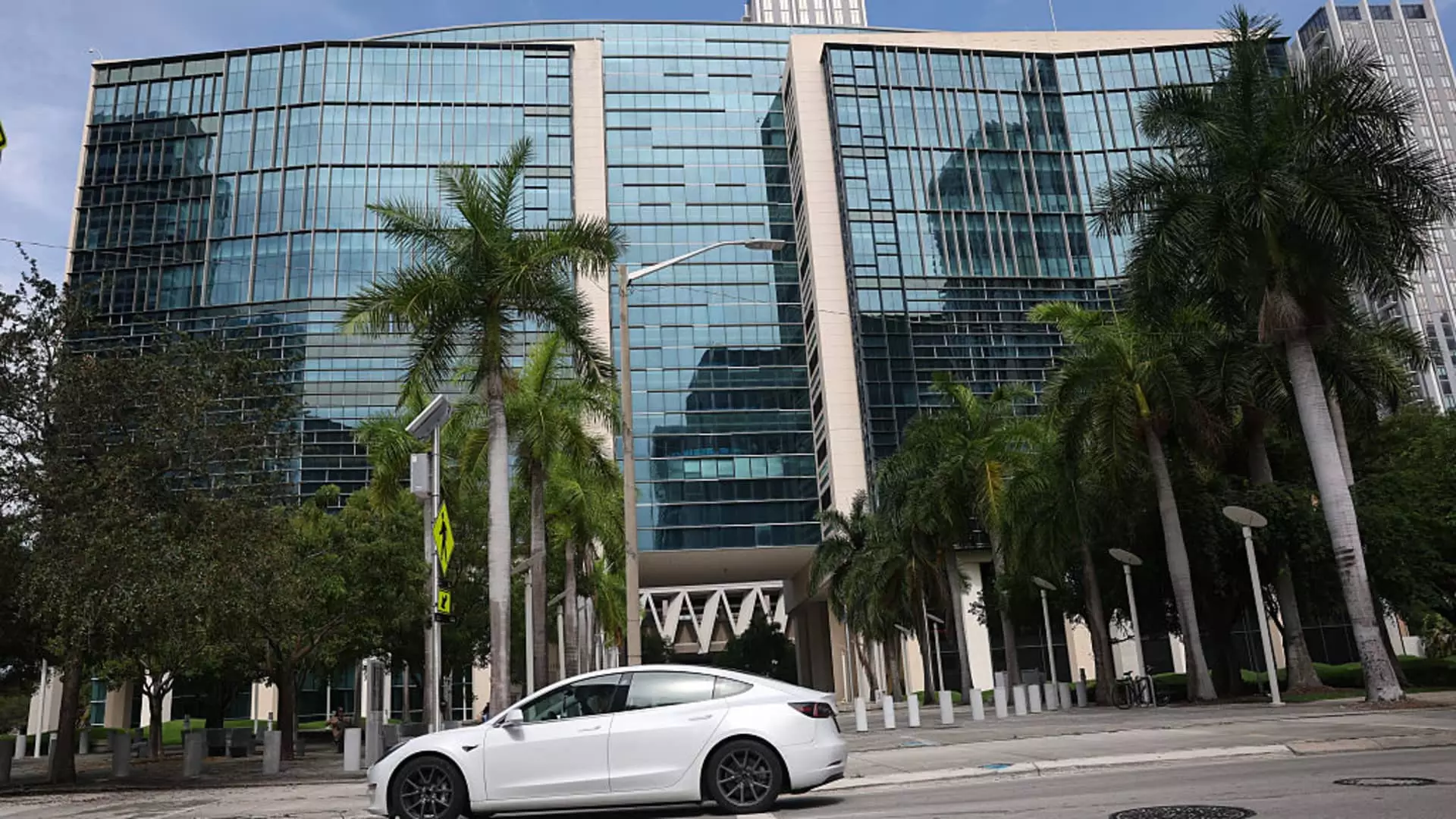Tesla’s ongoing legal battle over a deadly 2019 Autopilot crash exposes a fundamental tension that lies at the heart of the modern automotive industry: Should technological innovation be prioritized above all else, or do companies like Tesla bear an unavoidable moral and legal responsibility for their innovations’ safety? As the first federal courtroom showdown detailing the dangers of partially automated driving systems, the case pits Tesla’s aggressive push for autonomy against mounting safety concerns. The outcome could serve as a wake-up call, not only for Tesla but for the industry, suggesting that cutting-edge progress cannot come at the expense of accountability.
The lawsuit revolves around a tragic incident in Key Largo, Florida, where a driver under Tesla’s Autopilot system caused a fatal crash. The victim, 22-year-old Naibel Benavides, was killed when her car was struck by George McGee, who was allegedly distracted while using Autopilot. This tragedy underscores one uncomfortable truth: automation, as promising as it may seem, remains imperfect and dangerous when misused or misunderstood. Tesla has long marketed Autopilot as an advanced driver-assistance system, yet the narrative pushed to consumers often exaggerated what these systems could reliably do.
Tesla, under Musk’s leadership, built its reputation on pioneering bold autonomous features and claiming that its vehicles would soon achieve full self-driving capabilities. However, these claims have often skirted the reality of system limitations, leading to overreliance and risky driver behaviors. This legal challenge calls out the company’s apparent willingness to oversell its technology while providing insufficient safeguards for their customers. If found liable, Tesla’s reputation for innovation could be overshadowed by its neglect for essential safety standards—a fall from the pedestal of technological heroism to corporate negligence.
Legal Warfare: Blame, Misinformation, and the Pursuit of Justice
The courtroom is a battleground where the plaintiffs argue that Tesla’s Autopilot existed as a potentially lethal device because of its undisclosed flaws and overhyped promises. Plaintiffs’ lawyers accuse Tesla of knowing about safety issues but failing to address them, prioritizing market dominance and shareholder profits over consumer safety. The figure at the center—Elon Musk—has been portrayed as both a visionary and a reckless risk-taker willing to gamble with human lives in pursuit of technological supremacy.
In their legal strategy, the plaintiffs highlight Musk’s rhetoric, which at times overpromised what Autopilot could deliver. Such statements, they suggest, fostered an environment where drivers believed the system was more capable than it truly was, leading to negligent use. Conversely, Tesla’s defense downplays these concerns, asserting that drivers must understand their responsibilities and that the company provides sufficient guidance. However, such an argument glosses over the core issue: does Tesla adequately inform and protect its users, or is it underwriting a culture of complacency driven by corporate greed?
The case’s broader implications reach into regulatory and ethical domains. Should Tesla be held accountable for systemic safety neglect, or does this threaten to slow down innovation at a time when autonomous technology could revolutionize transportation? This legal confrontation represents a strategic inflection point where the industry’s moral compass will be scrutinized against the allure of technological leadership.
The Future of Auto Safety and Corporate Accountability
If the jury finds Tesla culpable, the repercussions may extend far beyond a single lawsuit. A verdict for the plaintiffs could mandate tighter regulations on autonomous systems, forcing automakers to accept greater oversight before releasing advanced driver-assistance features to the public. On the other hand, a dismissal could embolden Tesla and similar companies to accelerate autonomous systems without rigorous safety checks, risking a wave of similar tragedies.
This case also poses a philosophical dilemma for center-right liberalism: balancing innovation with responsibility. A society that champions technological progress must also ensure that such progress does not endanger, or even cost, human lives. Tesla’s predicament serves as a case study in the danger of placing profit and market share over fundamental safety standards. An effective response requires regulatory bodies to establish reasonable boundaries where technological advances can be pursued responsibly without compromising the safety of ordinary drivers.
What remains clear is that the road ahead for Tesla is fraught with peril—legal, ethical, and reputational. Their actions in court will determine whether they are seen as trailblazers who failed to secure their innovations, or as reckless operators risking lives for profit. Their fate hinges not just on judicial findings but on the broader moral judgment of society regarding the true cost of technological leadership.

